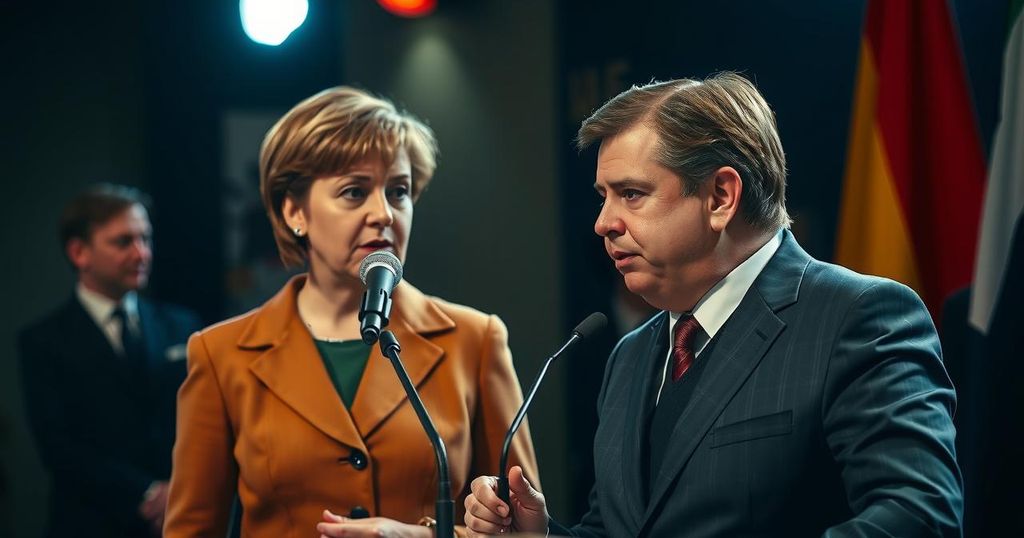Pressure Mounts on Scholz to Consider Stepping Aside for Pistorius in German Election
Chancellor Olaf Scholz is under pressure to step down as the SPD’s candidate in favor of popular Defense Minister Boris Pistorius ahead of Germany’s snap election. As party leaders convene to discuss the election strategy, Scholz’s approval ratings have plummeted, prompting calls for a change in leadership. Pistorius emerges as a potential candidate who embodies qualities lacking in Scholz, while internal party divisions characterize the SPD’s current landscape.
Germany’s Chancellor Olaf Scholz faces mounting pressure to relinquish his candidacy for the upcoming February snap election to his Defense Minister, Boris Pistorius, who currently enjoys significant popularity. The leadership of the Social Democratic Party (SPD) is planning urgent discussions regarding the nomination while Scholz returns from the G20 summit in Brazil. Media speculation draws parallels to U.S. politics, particularly referencing Joe Biden’s withdrawal in favor of Kamala Harris during the Democratic primaries. Scholz has struggled to maintain support since leading a coalition government, which recently collapsed amidst internal strife, marked by his dismissal of Finance Minister Christian Lindner. Despite declaring his intention for a second term, Scholz’s efforts to mend the party and revive the economy have not translated into voter support. Recent polling reveals him lagging significantly behind other political figures, notably Pistorius, who has maintained a favorable image. In light of Scholz’s dismal approval ratings and a growing sentiment calling for a change in leadership, influential members of the SPD openly advocate for Pistorius as a candidate better positioned to challenge the center-right Christian Democrats (CDU), who lead significantly in polls. Political analysts indicate an increasing dissatisfaction within the party, emphasizing the urgent need for strong leadership to avoid electoral disaster. Scholz has also faced criticism for his disengaged political demeanor and inability to effectively connect with constituents and fellow politicians, further exacerbating his party’s issues. As pressure mounts, observers suggest that while there is opposition to appointing Pistorius as the new candidate, internal divisions regarding the approach towards Ukraine could complicate matters. While Scholz has supported military aid to Kyiv, his more cautionary stance contrasts with Pistorius’s assertive defense policy. Therefore, the SPD must navigate these internal conflicts carefully as the election date approaches, evaluating the risks and benefits of either retaining or stepping away from Scholz’s candidacy.
Germany is nearing a significant political shift with a snap election scheduled for February 23, 2024. Amid a challenging economic climate exacerbated by external pressures such as the war in Ukraine, Chancellor Olaf Scholz’s leadership has come under scrutiny. The SPD, once seen as a viable governing party, is now trailing behind the CDU in popularity polls. Amid rising concerns over inflation and public dissatisfaction with government performance, the party’s internal dynamics could change fundamentally if they decide to endorse a new candidate like Boris Pistorius before the election.
In summary, Chancellor Olaf Scholz’s candidacy for the upcoming German election is increasingly challenged by the rising popularity of Defense Minister Boris Pistorius. As the SPD grapples with internal dissent and public discontent, the urgency to reconsider their leadership strategy grows. Scholz’s continued candidacy could jeopardize the party’s electoral prospects, particularly against a strong CDU, highlighting the need for decisive action in the rapidly approaching election cycle.
Original Source: www.theguardian.com




Post Comment